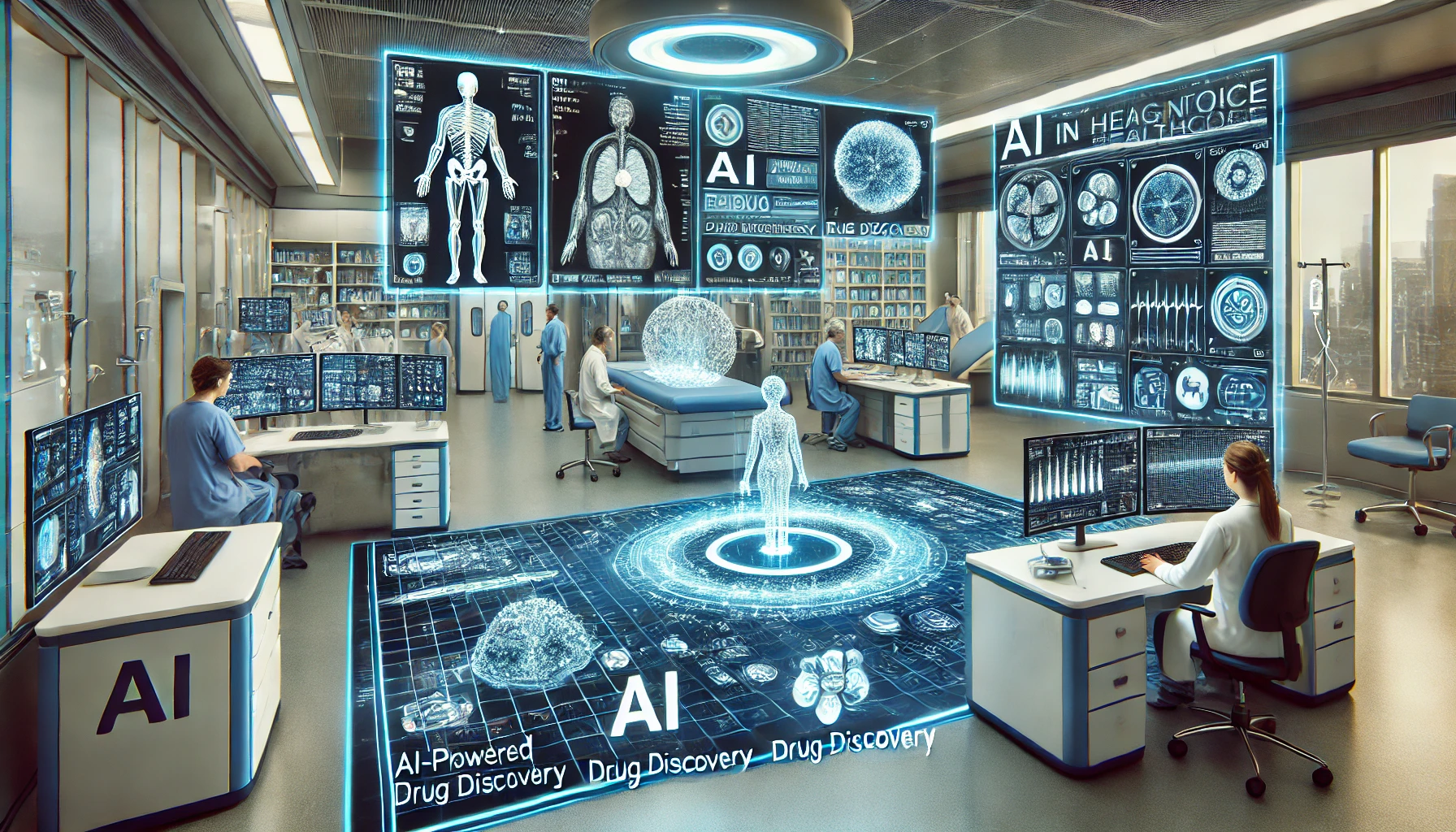AI in Healthcare: How Robots Are Revolutionizing Medicine from Diagnosing to Curing You Faster Than You Can Say 'Doctor'

The Age of AI: A Healthcare Revolution
Welcome to the brave new world of healthcare, where Artificial Intelligence (AI) is stepping in with a stethoscope in one hand and an algorithm in the other. It's no longer just a sci-fi fantasy—AI is enhancing diagnostic accuracy, speeding up drug discovery, and creating personalized treatment plans as unique as your fingerprint. Gone are the days when doctors had to rely solely on gut instinct and bulky textbooks. Now, they have AI-powered tools that can see through you—literally. But don’t worry, your secrets are still safe (well, mostly).
AI in Diagnosis: Your Virtual Radiologist
Ever had a radiologist take hours to examine your X-rays or MRI scans? Those days might be numbered, thanks to AI! With AI-powered radiology, computers are scanning through images faster than a caffeine-fueled intern, spotting anomalies that the human eye might miss. Take for example Zebra Medical Vision, an AI platform that can detect anything from lung cancer to liver disease, all before you can say 'machine learning.' The beauty here isn’t just speed—it's accuracy. Machines don't get tired or distracted, and they can analyze thousands of images in a fraction of the time it takes a human doctor. Bonus: no coffee breaks!
AI-Driven Drug Discovery: Because Who Needs Decades?
Let’s talk about drug discovery, one of the slowest processes in healthcare. Developing a new drug used to take years—decades even. Enter AI, and now we’re talking months or even weeks. AI systems like IBM Watson are scouring research papers, clinical trials, and biological data faster than a grad student before finals week, discovering molecules that might just be the next breakthrough in cancer treatment. These algorithms can sift through chemical compounds and predict which ones are most likely to be effective, skipping countless dead ends and delivering results faster than you can say 'pharmaceutical giant.' And trust me, big pharma is all ears.
Personalized Medicine: Your Body, Your Data, Your Treatment
Personalized medicine is where AI truly shines, turning 'one-size-fits-all' treatment into a thing of the past. Thanks to predictive analytics, AI is helping doctors craft treatment plans tailored to the individual, taking into account everything from genetic makeup to lifestyle factors. Imagine this—your future doctor (or AI assistant) could look at your genetic data, medical history, and even your smartwatch readings to determine exactly what medication or treatment you need. No more guessing games, just precision care. AI systems like DeepMind Health are even predicting which patients are at risk for complications, allowing for proactive rather than reactive care.
Real-World Applications: Where AI is Already Making a Difference
AI isn’t just a shiny new toy—it’s already saving lives. One striking example is Google’s DeepMind, which uses AI to detect over 50 eye diseases with just one scan. Or how about Aidoc, a company specializing in AI-driven radiology? They've created software that flags critical conditions like strokes or brain bleeds instantly. It's like having a medical superhero on call, minus the cape. In predictive analytics, AI tools are helping hospitals foresee patient outcomes, managing everything from ICU admissions to surgical complications with shocking accuracy. If your hospital isn’t using AI yet, it’s only a matter of time before it does.
The Future of AI in Healthcare: Sky’s the Limit (Or Maybe Beyond)
The future of AI in healthcare is as exciting as it is unpredictable. Think about AI-powered robots performing surgeries more accurately than human hands ever could or AI assistants keeping track of your health data 24/7, alerting you before anything goes wrong. The possibilities are endless—from mental health apps providing real-time emotional support to AI models predicting disease outbreaks before they occur. One thing is certain: AI is going to continue evolving, and healthcare will never be the same again. The question isn’t whether AI will revolutionize healthcare; it’s how fast it will happen.
Conclusion: Ready for an AI-Powered Healthcare Future?
As AI continues to advance, we’re not just looking at better healthcare; we’re looking at a smarter, faster, and more precise system that works for everyone. From diagnosing diseases to crafting personalized treatments, the role of AI in healthcare is already shaping a brighter, healthier future for all. But what do you think? Are you ready to trust a machine with your health, or does the thought of an AI-powered doctor still freak you out a little? Let’s hear your thoughts!



